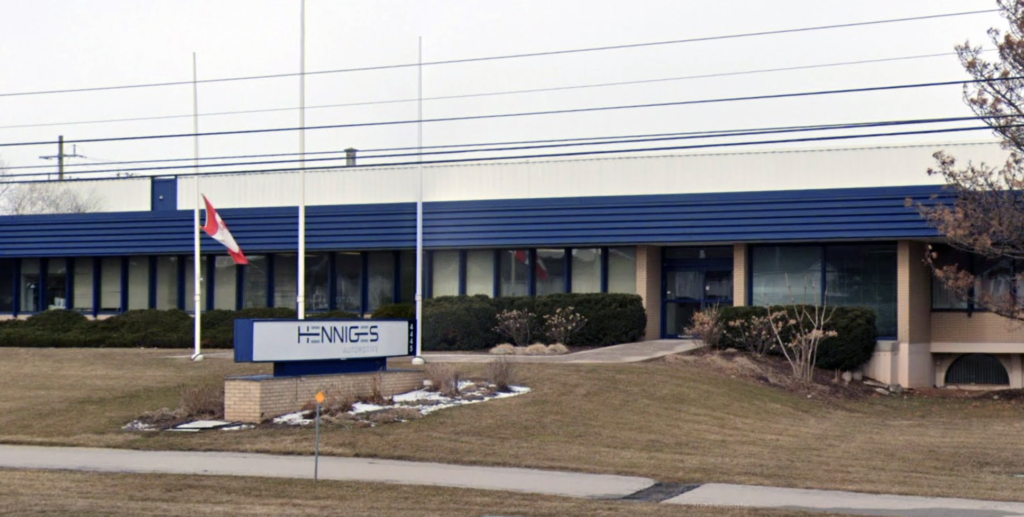
The recent announcement of Henniges Automotive closing has sent shockwaves through the automotive and manufacturing industries. As a major supplier of sealing and acoustical products for automotive manufacturers worldwide, this decision will have far-reaching consequences. In this article, we will explore the reasons behind the closure, its impact on the automotive sector, and what it means for the company’s workforce and the communities in which it operates.
Henniges Automotive: A Leading Supplier in the Automotive Sector
Henniges Automotive has long been recognized as one of the leading suppliers of sealing, acoustical, and anti-vibration products for the global automotive industry. With a history of innovation and strong relationships with major car manufacturers, the company has played an essential role in providing high-quality products that improve the performance, comfort, and safety of vehicles.
The company’s product line includes a range of automotive components, such as seals, gaskets, and insulation systems. These components are critical in maintaining a vehicle’s efficiency and longevity, contributing to reducing noise levels, preventing water ingress, and improving the overall driving experience. With its advanced technology and extensive production capabilities, Henniges Automotive had established itself as an indispensable part of the global automotive supply chain.
What Led to Henniges Automotive Closing?
While Henniges Automotive closing has come as a surprise to many, the company had been facing several challenges that may have contributed to this decision. Over the past few years, the automotive industry has undergone significant transformations. Factors such as shifting market demand, supply chain disruptions, and rising operational costs have put pressure on many manufacturers, including suppliers like Henniges Automotive.
The shift toward electric vehicles (EVs) has also had an impact on companies that primarily serve the traditional combustion engine market. As automakers increasingly focus on EV production, suppliers must adapt to new manufacturing processes and product requirements. Unfortunately, Henniges Automotive closing may be a result of these changes, as the company may have struggled to pivot fast enough to meet the demands of a rapidly evolving industry.
Additionally, labor-related issues, rising material costs, and global economic instability could have further contributed to the closure. The company’s inability to compete with lower-cost suppliers and keep up with technological advancements may have eventually led to this difficult decision.
The Economic and Workforce Impact of Henniges Automotive Closing

Job Losses and Workforce Transitions
One of the most immediate and impactful consequences of Henniges Automotive closing is the loss of jobs for its employees. The company employed thousands of workers in various locations worldwide, including production plants, administrative offices, and research and development facilities. The sudden closure will leave many workers without employment, creating economic uncertainty for the affected families.
For employees who have been with the company for years, this closure marks the end of a chapter in their careers. Many of them will face the challenge of finding new jobs in a competitive job market. Although severance packages and support services may be offered, the reality of job loss in a specialized sector can be difficult to overcome.
The Ripple Effect on Local Economies
In addition to the direct impact on the workforce, Henniges Automotive closing will also affect the local economies where the company had a significant presence. For cities and towns that relied on Henniges Automotive for jobs, local businesses, and tax revenue, this closure represents a substantial economic setback.
Small businesses in areas where Henniges had manufacturing facilities may see a reduction in sales, as workers who were once customers may now have reduced disposable income. Additionally, municipalities that relied on the company’s tax revenue may face budget shortfalls, affecting public services like schools, healthcare, and infrastructure maintenance.
The Closure’s Impact on the Automotive Supply Chain
Henniges Automotive closing will also have a broader impact on the automotive supply chain. As a supplier to some of the world’s largest car manufacturers, the company’s closure creates a void in the availability of critical components. Automakers may now need to seek alternative suppliers, which could lead to disruptions in production schedules, delays in vehicle deliveries, and increased costs.
The automotive supply chain is highly interconnected, and the closure of a major supplier like Henniges Automotive can cause a ripple effect. Tier 1 suppliers, downstream manufacturers, and logistics providers will all feel the impact of losing a key player in the market.
What Happens Next After Henniges Automotive Closing?

Alternative Suppliers and Transitioning the Market
The closure of Henniges Automotive will force the automotive industry to find alternative suppliers for the components that Henniges once provided. While some companies may be able to absorb the loss of Henniges’ products, others may face difficulties in replacing the specialized sealing and acoustical technologies that Henniges offered.
Suppliers with similar capabilities will be under pressure to meet the demand for these critical components. Companies that specialize in automotive seals, gaskets, and soundproofing materials may see a surge in orders as automakers scramble to secure reliable replacements for the products previously supplied by Henniges Automotive.
The Future of the Workforce: Retraining and Reskilling
For the workers impacted by Henniges Automotive closing, retraining and reskilling will be key to finding new employment opportunities. Many of the workers affected by this closure have specialized skills that may not easily transfer to other industries. As such, workforce development programs will be essential in helping these individuals transition into new roles.
Governments and industry organizations may need to collaborate with educational institutions to create training programs that can quickly upskill workers in areas such as electric vehicle manufacturing, renewable energy, or other growing sectors. This approach would not only help displaced workers but also address the broader challenge of workforce adaptation in a rapidly changing economy.
Potential Opportunities for Competitors and Startups
The closure of Henniges Automotive also opens up opportunities for competitors and new startups to enter the market. While the automotive industry is highly competitive, there are always opportunities for companies that can provide innovative solutions or offer more cost-effective alternatives. Entrepreneurs and established players who can fill the gap left by Henniges’ exit could gain significant market share.
Innovative startups may also find this as an opportunity to introduce cutting-edge technologies to the automotive supply chain, such as more sustainable materials or automated manufacturing processes. These advancements could help reshape the market and pave the way for a more sustainable and technologically advanced automotive industry.
The Bigger Picture: The Evolution of the Automotive Industry and Supplier Dynamics
The Rise of Electric Vehicles and Changing Supply Chains
The automotive industry is in the midst of a transformation. The rise of electric vehicles (EVs) is reshaping the entire supply chain, from raw material sourcing to final assembly. For suppliers like Henniges Automotive, this shift may have created additional pressure, as the demand for traditional automotive components has started to wane in favor of electric-specific technologies.
As automakers continue to shift their focus towards EVs, suppliers will need to adapt to new requirements, including lightweight materials, battery technology, and enhanced insulation. Those who can successfully navigate this transition will thrive, while those unable to adapt may face the same fate as Henniges Automotive closing.
The Role of Automation in Automotive Manufacturing
Another key trend in the automotive industry is the increasing reliance on automation and robotics. As car manufacturers look for ways to reduce labor costs and improve production efficiency, automation has become a central part of the industry’s evolution. Companies like Henniges Automotive that relied on traditional manufacturing processes may have struggled to keep up with the demand for more automated solutions.
The closure of Henniges could pave the way for more technologically advanced suppliers that embrace automation and AI-driven manufacturing. This shift may lead to greater productivity, lower costs, and a more streamlined automotive supply chain in the long term.
Conclusion: The Aftermath of Henniges Automotive Closing
In conclusion, the Henniges Automotive closing marks a significant moment in the automotive industry, highlighting the challenges faced by suppliers in a rapidly changing market. The closure has far-reaching consequences for employees, local economies, and the broader automotive supply chain. However, it also offers opportunities for innovation, competition, and workforce retraining as the industry adapts to new technologies and market demands.
As the automotive sector continues to evolve, suppliers and manufacturers will need to stay agile, embracing new technologies and business models to stay competitive. The story of Henniges Automotive closing is not just about the end of a company but about the ongoing transformation of an entire industry.


